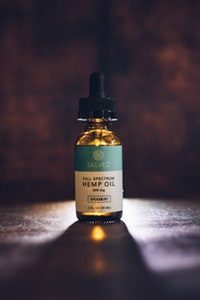Is Marijuana a Sin?
 Something I find amusing is that, despite my reputation for being “passionate” about God, people frequently ask my stance on trending topics. I’m sure they know my belief, but I guess they are intrigued by my point of view. Nonetheless, I have come to understand that despite people appearing to reject the truth, some are what I call modern-day Nicodemuses (John 3:1). They learn from Jesus by night to avoid being spotted publicly.
Something I find amusing is that, despite my reputation for being “passionate” about God, people frequently ask my stance on trending topics. I’m sure they know my belief, but I guess they are intrigued by my point of view. Nonetheless, I have come to understand that despite people appearing to reject the truth, some are what I call modern-day Nicodemuses (John 3:1). They learn from Jesus by night to avoid being spotted publicly.
Anyhow, I had someone request my opinion regarding marijuana. If I base my answer on my opinion, I specify it like Paul, who said, “I speak as a man.” Even so, my conclusion centers on the Word of God. What I find interesting is that while we are no longer under the law, people still look for righteousness to appear as the ten commandments. They need to see “thou shalt not smoke reefer” to believe that it is wrong.
The laws of this country have affected the judgment of many teammates. For the record, just because it’s legal with man does not mean God authorizes it. And, there are more than ten commandments in the Bible.
Marijuana has several names: cannabis, Mary Jane, weed, twenty-twen, cush, trees, the goods, reefer, pot, ganja, and many others. Marijuana is a subject that is disputed among believers. But, based upon my examination of the Scriptures, at this time, I am unable to come to a concrete yay or nay concerning marijuana in its totality. But, there are some things I want to bring to your attention and consideration.
Drunkenness
 Previously, I wrote an article about gluttony and how the term references general greed, not only overeating. Similarly, drunkenness, defined as intoxication, is not only about alcohol. Ephesians 5:18 says, “And be not drunk with wine, wherein is excess, but be filled with the Spirit;” The “with” in this Scripture indicates that a person can be intoxicated with anything. Even more, the Scripture gives a clear understanding that if we, believers, are to be “filled,” with anything, let it be with the Spirit of God.
Previously, I wrote an article about gluttony and how the term references general greed, not only overeating. Similarly, drunkenness, defined as intoxication, is not only about alcohol. Ephesians 5:18 says, “And be not drunk with wine, wherein is excess, but be filled with the Spirit;” The “with” in this Scripture indicates that a person can be intoxicated with anything. Even more, the Scripture gives a clear understanding that if we, believers, are to be “filled,” with anything, let it be with the Spirit of God.
Additionally, throughout the Scriptures, there is a command unto believers to be “sober.” Understanding this lets me know that being under the influence of any substance with the intent of intoxication is indeed a sin.
Medicinal Purposes
 Now, I understand that some people take cannabis as medicine. Yes, God created it, and the Bible says that the leaves of plants can be used as medicine (Ezekiel 47:12). But, getting high was not the permitted use of the leaves. But, If someone was to find themselves high, without intending to, because of medication, it is not a sin.
Now, I understand that some people take cannabis as medicine. Yes, God created it, and the Bible says that the leaves of plants can be used as medicine (Ezekiel 47:12). But, getting high was not the permitted use of the leaves. But, If someone was to find themselves high, without intending to, because of medication, it is not a sin.
We know that other medications have an intoxicating effect, like narcotics, but due to its natural origin, cannabis seems to evoke a more extensive debate. But let’s be real about the matter – everyone with a prescription does not have an ailment. Some people are lying so that they have the legal right to use. (People have told me this is what they do.) So, despite their prescription, they truly are in the group of those who seek intoxication, which is a sin.
God Above Cannabis
One thing I want to point out is this. Today, people are promoting sicknesses, mental illness, and weaknesses at a very high rate. Yet, there are not enough people endorsing the fact that our God is a healer and deliverer, who has the power and authority to set anyone free who is bound. Am I telling you not to see a physician? No. I am encouraging anyone who is suffering from any sickness, whether it be in mind or body, to seek the Great Doctor, Jesus.
Honestly, do you think people have the same persistence to obtain prescriptions as they do about receiving healing from God? Think about it. Many encourage others to embrace mental illnesses, all while the Bible says that God has given us a “sound mind” (2 Timothy 1:7). Should the people of the Almighty God come in agreement with the pronouncements of the enemy or flesh? Where is the “woman with the issue of blood” faith? Someone who will not settle for being plagued with illness or addiction to painkillers, and press their way toward Jesus?
Understand, utilizing marijuana recreationally versus medically may be rooted in two different motives. Nonetheless, they both have the same solution, that is Jesus.
SO, WHAT’S THE PLAY CALL?
Teammate, sobriety is a way of life for Christians, even more so for leaders (1Timothy 3:2). What I am about to say may be a little too much for some, but intoxication can sometimes cause your senses to open spiritually. Don’t think it strange that another name for wine is spirits. Or, that some medicines fall into the classification of hallucinogens. Some things are not a coincidence; they have hidden meanings.
Before salvation, I knew this to be true. As a young and rebellious teenager, when I smoked weed, I experienced things that I now know as a prophetess to be spiritual realms. Having access to spiritual realms can be very dangerous. One example of this is people who are found to be under the influence of drugs that commit heinous crimes.
I understand that God created cannabis. But when evaluating whether God approves of something, we not only have to consider whether it was created but also the purpose of the creation. When we violate the intended use of His creation, we pervert it. For example, marriage was created by God for a man and woman, but when people pervert marriage, applying it to unions other than man and woman, it then loses its godly approval.
If you are using marijuana to get high, repent, and turn from it. I pray that whatever void you need to be filled will be filled by God. If you are taking it for medication, I pray that God heals you so that you do not have to live dependent on any drug. Last, always remember to take heed to the conviction of the Spirit. God is never wrong.
I love you all.





Wow! Amazing, thanks so much. The best explanation on this topic by far. God bless